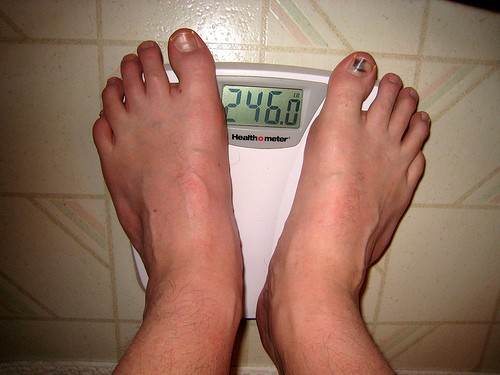
Researchers have found a link between maternal weight gain during pregnancy and autism spectrum disorders (ASD) in children.
Autism spectrum disorder (ASD) or simply, autism, is a term used to characterize a group of disorders that affect the normal development of the brain. The developmental disorder starts by age three and leads to significant social, communication and behavioural changes. Difficulties in social interaction, verbal and non-verbal communication, or rigid-repetitive behaviours are very common among autistic children. Till now, there is no medical or blood test available for an early diagnosis of the condition. The behaviour and development of a child are some factors used by health practitioners to determine the disorder.
A study by the University of Utah confirmed the association between moderate increase in pregnancy weight gain and risk of autism in children by analysing two different groups of children, aged eight. The first group included 128 children with autism and 10,920 children without the condition. The second group included 288 autistic children and their siblings without the disorder. Information about the children were collected from the Utah Registry of Autism and Developmental Disabilities, part of the Utah Department of Health (UDOH) registry.
While examining the birth certificate records of the participants, the American researchers noticed that the weight gain patterns of women with autistic children were similar.
Lead author of the study Deborah A. Bilder said that weight gain in pregnancy does not cause autism, but may trigger abnormal hormone levels or inflammation. "The risk of autism spectrum disorder associated with a modest yet consistent increase in pregnancy weight gain suggests that pregnancy weight gain may serve as an important marker for autism's underlying gestational etiology," Bilder, an assistant professor of psychiatry at the University of Utah, said in a news release.
"These findings suggest that weight gain during pregnancy is not the cause of ASD but rather may reflect an underlying process that it shares with autism spectrum disorders, such as abnormal hormone levels or inflammation."
However, the authors told pregnant women not to panic by their findings. "The findings in this study are important because they provide clues to what may increase the risk of having an autism spectrum disorder and provide a specific direction for researchers to pursue as they search for the causes for autism spectrum disorders," said Bilder. "Doctors have known for a long time that proper nutrition is essential to a healthy pregnancy. Pregnant women should not change their diet based on these results. Rather, this study provides one more piece for the autism puzzle that researchers are exploring."
The study reported in the November edition of Pediatrics re-confirms a July study, which found that consumption and maintenance of certain healthy fats in pregnancy protected women against the risk of having a child with autism.
According to health experts, an early diagnosis of the disorder helps in better treatment. Research has been going on for a long time to find out the factors that lead to this occurrence and detect it early. Previous studies have also shown that several other factors like the use of anti-epileptic drug Valproate during pregnancy, smoking habit in pregnancy, abuse in childhood, maternal fever, maternal deficiency of vitamin D, exposure to air pollution in pregnancy, exposure to preservative propionic acid, (PA), weak thyroid, induced labour, low or high birth weight, in vitro fertilization (IVF) treatment, and early exposure to heavy metals like lead and mercury contributed to autism in children.












